|
|
|||||
This week in Aftershocks, Davos Man just can’t stop himself, South Africa’s energy crisis worsens, and much more. |
|||||
|
|
|||||
Top NewsDavos, man: The World Economic Forum annual meeting convened in Davos this week, despite mounting criticism that its attendees are out of touch with the harsh realities impacting most of the world. Perhaps because of those optics, only one G7 leader – Germany Chancellor Olaf Scholz – attended. The US reportedly accounted for 27% of attendees,with Switzerland and the UK accounting for a distant 2nd and 3rd, at under 10% each. South Africa had the largest African representation, though President Cyril Ramaphosa withdrew at the last minute due to his country’s ongoing energy crisis (more on that below). According to insiders the mood was sombre – the Ukraine war, climate change, geopolitical tensions, and a gloomy economic outlook are threatening the worldview of globalisation that Davos represents. Strikingly, only 9% of those surveyed in its global risks report expect “renewed stability with a revival of global resilience” in the next ten years. Read the backstory in this twitter thread from ONE’s David McNair. In the face of skyrocketing inequality, over 200 millionaires are demanding higher taxes on the super-rich, though it’s unclear if anyone in Davos is actually listening. Yellen takes off: The world’s most influential economic policy-maker chose Africa over the alpine slopes: US Treasury Secretary Janet Yellen is instead courting leaders from Senegal, Zambia, and South Africa. Her expansive agenda includes funding high-quality infrastructure investments, curbing food insecurity, addressing debt and climate vulnerabilities, and not-so-subtly countering Chinese and Russian influence. Trips to Africa by US officials have been few and far between in recent years. The current US administration is signalling its desire to turn that around, but some worry it’s just a 21st-century scramble for the continent’s vast resources – including at least a third of the minerals required for the green energy transition. Powering down: Frustration over rolling blackouts and a sharp increase in the electricity tariff could lead to a political crisis in South Africa. South Africans are experiencing rolling blackouts that leave them without power for up to 12 hours daily. The country’s energy regulator recently announced an increase in the Eskom tariff to 18.65% in 2023 and a 12.74% hike in 2024, which led to increased calls for strikes, protests, and a national shutdown. Opposition political parties are using the crisis to attack the ruling ANC party. More than 100,000 people signed an online petition organised by the opposition party Democratic Alliance urging the government “to ensure cheaper and more reliable electricity.” The power outages are threatening to throw the country’s economy into a recession, with economists raising that probably to 45% in 2023. Rising energy: Zambia signed a $2 billion deal with the United Arab Emirates to build solar plants that will boost the African country’s energy production by more than half. Zambia is currently experiencing rolling blackouts of up to 12 hours a day, due in part to lowered water levels affecting hydropower generation. The DRC signed deals with three Canadian and American firms to produce electricity from methane trapped in Lake Kivu. The methane, which is a potent greenhouse gas, is partially produced by microorganisms in the lake. Meanwhile, more than 45 philanthropic, public, and private partners launched a new initiative, Giving to Amplify Earth Action, to help generate the $3 trillion needed each year from public and private sources to tackle climate change and environmental loss. Philanthropic financing for climate mitigation represented less than 2% of the $810 billion in philanthropic giving in 2021. That's Lunacy! Nigeria has signed a new mental health bill into law, replacing the “outdated and inhumane” Lunacy Act put in place by British colonisers more than 100 years ago. The new law aims to enhance and protect the well-being of those suffering from mental health issues. This is part of a global shift to protect mental health: the WHO asked countries to update or develop mental health laws in line with international standards by 2020. More than 1 in 5 African countries updated their laws between 2014 and 2017. Sierra Leone expects to reform its colonial-era Lunacy Ordinance this year to better protect patients’ rights and plans to roll out basic mental health care across the country’s 16 district hospitals. And in a completely different approach to *protecting* public health: some vaccine makers and the German government reportedly pressured Twitter to silence activists who advocated for {gasp} equitable access to vaccines. 😱 From the ONE Team
The Numbers
 |
|||||
|
|
|||||
QUOTE OF THE WEEK
|
|||||
|
|
|||||
What you should read, watch & listen to
|
|||||
|
|
|||||
A LOOK AHEAD24 January: International Day of Education 25-27 January: the Dakar 2 Summit takes place in Dakar, Senegal. |
|||||
|
|
|||||
The ONE Campaign’s data.one.org provides cutting edge data and analysis on the economic, political, and social changes impacting Africa. Check it out HERE. |
|||||
|
|
|||||
|
|
|||||
Did you like today's email?Loved it Mehhh Hated it |
|||||
|
|
|||||
Did you like today's email?Loved it Mehhh Hated it |
|||||
|
|
|||||
Wie hat dir dieser Newsletter gefallen?Richtig gut! Ging so… Überhaupt nicht. |
|||||
|
|
|||||
|
|||||
|
|||||
|
|||||
|
This email was sent by ONE.ORG to test@example.com. You can unsubscribe at any time. ONE Campaign |
